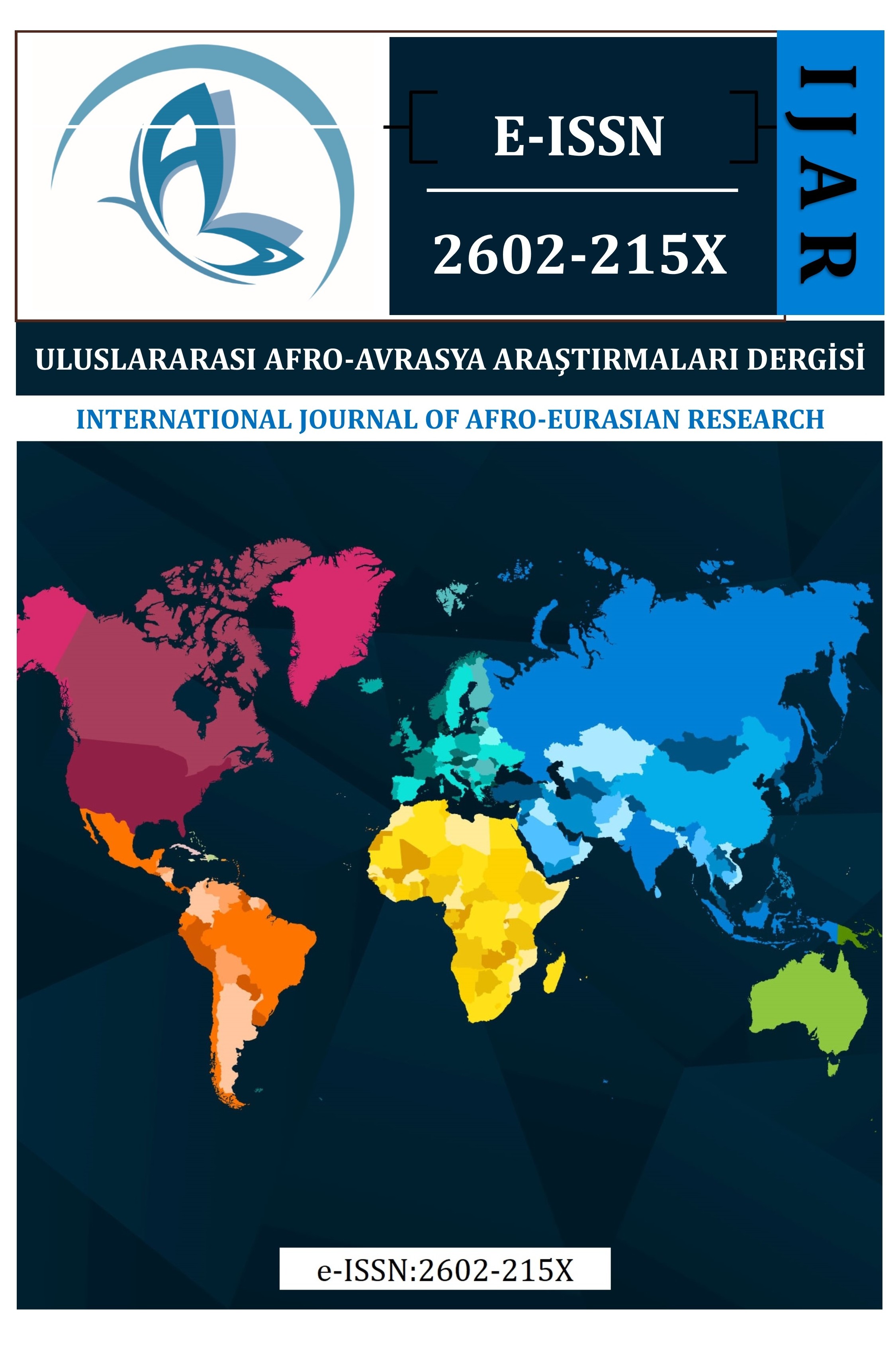Ethnic Parties in Turkish Political Life and Its Impact on Foreign Policy
Since 1990, the parties that have been described as Kurdish or Pro-Kurdish political parties have participated in the elections. The political presence of these parties has always been interpreted through their relations with the illegal terrorist organization PKK, which has been decisive in their relations with both the executive and the judiciary. Decisively, as a part of the political sphere, the impact of these parties' actions and their relations with governments from the 1990s to the present day on Turkish Foreign Policy is a matter that needs to be addressed. Firstly, this article tackles with the concept of ethnic party and its possible applicability for the cases of "Party of the Kurds" in Turkey. Although there is a prosperous literature on the definition of the ethnic party, this study is based on the assumption that the election performance of the parties is an important determinant. Secondly, the effects of these developments on Turkish Foreign Policy, especially on the relationship with European Union will be analyzed. Even today, Kurdish Question is still continuing due to the external and internal factors in the region. Therefore, the analysis of political developments in the 1990’s from the party politics perspective, is expected to make a significant contribution to the literature of this Question for the prospective studies.
Anahtar Kelimeler:
Ethnic party, Turkish Political Life, Turkish Foreign Policy
___
- Alonso, S. (2005). Enduring Ethnicity: The Political Survival Of Incumbent Ethnic Parties in Western Democracies. [online] Available at: http://www.wzb.eu/sites/default/files/personen/alonso.sonia.312/enduring-ethnicity.pdf [Accessed 1 Jan. 2019]. Badiki, A. (2003). Abdullah Öcalan, “Kürt krizinde çözüme doğru veya komploya yanıt”, Özgür İnsan Savunması.
- Balcı, A. (2013). Türkiye Dış Politikası, İlkeler, Aktörler, Uygulamalar. İstanbul: Etkileşim.
- Balcı, A. & Jacoby, T. (2012). “Guest editors’ introduction: debating the Ergenekon counterterrorism investigation in Turkey”, Middle East Critique, 21,(2).
- Bildirici, F. (2008). Yemin Gecesi, Şişli, İstanbul: Doğan Kitap.
- Chandra, K. (2005). Ethnic Parties and Democratic Stability. PPS, 3(02).
- Duverger, M. (1954). Political parties, their organization and activity in the modern state. London: Methuen.
- Ergil, D. (2000). The Kurdish Question in Turkey. Journal Of Democracy, 11(3), 122-135. doi:10.1353/jod.2000.0054
- Foucault, M. (1982). “The subject and power”, Critical Inquiry, 8, (4).
- Güney,A. (2001). “HADEP Parti Programı”, 5 Nisan 2001 Turkish Studies, 3 (1).
- Güneş, C. (2012). The Kurdish national movement in Turkey. New York: Routledge.
- “HADEP’ten AB ortaklık belgesine geçer not”, Hürriyet, 13 Kasım 2000.
- Margulies, R. (2007). International Socialism: The general elections, Islam and the left in Turkey.Isj.org.uk. Retrieved 2 December 2018, from http://www.isj.org.uk/index.php4?id=390
- Horowitz, D. (1985). Ethnic groups in conflict. 1st ed. Berkeley: University of California Press
- Kelly, V. E. (2002). “Political Movements and Leverage Points: Kurdish Activism in the European Diaspora”, Journal of Muslim Minority Affairs. 22, (1).
- Marcus, A. (2007). Blood and Belief: The PKK and the Kurdish Fight for Independence, New York: NewYork University Press.
- Muller, M. (1996). Nationalism and the Rule of Law in Turkey: The elimination of Kurdish representation during the 1990s.’ In R. Olson, The Kurdish Nationalist Movement in the 1990s: Its impact on Turkey and the Middle East. Kentucky: The University Press of Kentucky.
- Özkırımlı, U. (2000). Theories of nationalism. New York: St. Martin's Press.
- Polat,R. K. (2008) “The AKP and the Kurdish Issue: What Went Wrong?” SETA Policy Brief, No.14, p.12
- Sıvış, E. (2019). Türk Demokrasisinin Sıfır Noktası: Amerikan Dışişleri Belgeleri Işığında Türkiye’de Çok Partili Hayata Geçiş, İstanbul: Ötüken Neşriyat.
- Tunaya, T. (1984). Türkiyeʼde siyasal partiler [Political Parties in Turkey]. Istanbul: Hürriyet Vakfı Yayınları.
- “Türkiye’ye ‘müzakere tarihi verin’ mektubu”, Hürriyet, 28 Şubat 2004.
- Van Cott, D. (2005). From movements to parties in Latin America. Cambridge: Cambridge University Press.
- Başlangıç: 2016
- Yayıncı: Hakan ARIDEMİR
Sayıdaki Diğer Makaleler
TÜRKİYE’DE İÇ GÖÇ HAREKETLERİNİN KONUT SATIŞLARINA ETKİSİ
YENİ İPEK YOLU’NUN TÜRKİYE EKONOMİSİNE ETKİSİ
Zeki YILMAZ, Cihat ERDEM, Kubra KAYA
COPRAS VE VIKOR YÖNTEMLERİ İLE BIST ELEKTRİK ENDEKSİNDEKİ FİRMALARININ FİNANSAL PERFORMANS ANALİZİ
ÖZBEKİSTAN’DA AVRASYA EKONOMİK BİRLİĞİ TARTIŞMALARI
Hasan DURAN, Kadir Kürşat YILMAZ
TÜKETİCİ PROFİLİNİN TESPİTİ; KASTAMONU İLİNDE BİR UYGULAMA
Türkiye’de Reel Döviz Kuru ve Dış Ticaret Arasındaki İlişki (2003-2016)
VERİ ZARFLAMA ANALİZİ İLE İNSANİ KALKINMANIN DEĞERLENDİRİLMESİ: AFRO-AVRASYA ÖRNEĞİ
